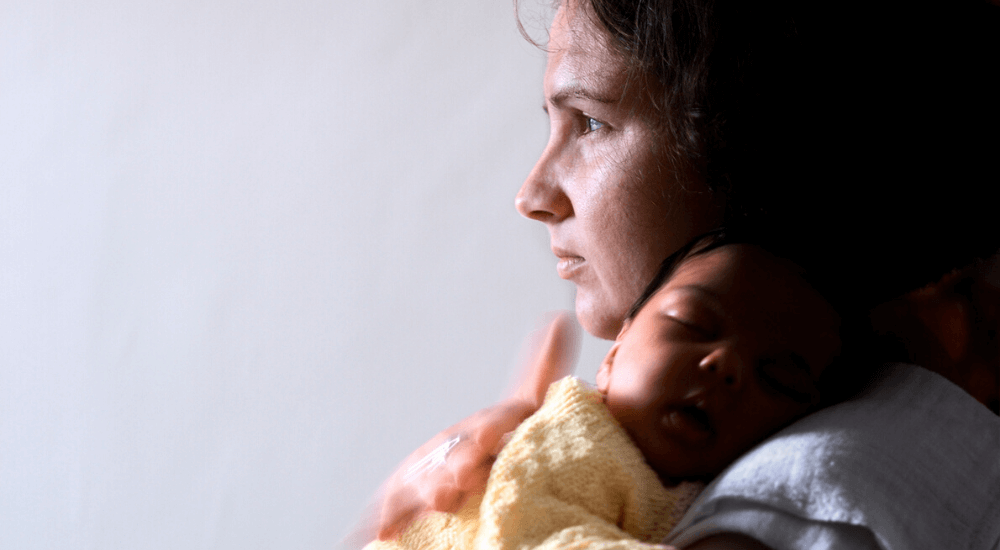Many new mums wonder if a paternity test can be done without the father’s knowledge. In some cases, the woman might be married to another man; or she might be in an abusive situation; in yet another scenario, she may not have wanted the possible father to know she was pregnant in the first place. So is it possible for a UK paternity test to be done without the father’s knowledge? We’ll answer this and other pressing questions you may have about a paternity test.
Can a UK Paternity Testing be Done Without the Father’s Knowledge?
No. Conducting a DNA paternity test without the father’s knowledge is not legal in the UK. All adults being tested must give their consent to have their samples tested. According to the Human Tissue ACT, taking someone’s DNA with the intention of having it tested without his or her consent would be to commit a criminal offence. Legally, he must sign a chain-of-custody form that authorises the laboratory to undertake the testing process.
Can the Father Refuse DNA Paternity Testing?
Yes. The possible father of a child does have the right to refuse a court-ordered DNA test, however he will experience legal consequences for doing so. DNA testing is typically considered a civil lawsuit and the judge can try to force the possible father to provide a sample to a Ministry of Justice Approved laboratory.
If the possible father refuses to take the test at this point, he can be held in contempt of court, which can lead to legal consequences such as fines and the court taking the view that the alleged father has something to hide. The court may even assume paternity in the absence of a test, so ultimately it really isn’t in his best interest to refuse.
Yes, it is possible to have a DNA paternity test without involving the father directly. One way is to test the father’s parents or his first-degree relatives. This type of test is more expensive since extensive analysis is required, and we always recommend that the mum contribute her DNA as well in order to obtain the most conclusive results possible. If the possible father is deceased, then an autopsy sample can be used. However, a chain-of-custody form that authorises the procedure must be signed by his next of kin and the coroner. This allows for a court to recognise the validity of the results.
How Accurate is a DNA Paternity Test?
If you are able to get a sample directly from the father, as is the case with simple buccal cheek swabs, these tests can have up to 99.9999% accuracy.
DNA tests are powerful tools when determining paternity in divorce and related custody or child support cases. They help women identify biological fathers, and alleged fathers prove they are not biological fathers.
What matters most is how the samples are collected. They must follow the chain-of-custody process. When being tested, mothers and named fathers must present a valid ID and/or passport photograph, sign the Chain of Custody authorisation, and their samples must be securely packaged with their ID.
Can You Contest the Results of a Potentially-Falsified DNA Test?
Perhaps. In some cases, DNA test results can be contested, and there are a few situations where this can happen:
- If the result is believed to be fraudulent
- In cases where the alleged father proves he is infertile
- Clear evidence is available showing someone has tampered with the lab results
How Many DNA Tests Are Done Each Year?
In 2006, it was estimated that 30,000 paternity tests are performed each year in the UK. Statistically, men who question whether they are the biological father of the child they’re raising are in fact not the biological father about 30% of cases. Paternity tests are a useful tool for proving paternity in divorces and other legal cases. If you are trying to determine paternity, just make sure you have the results collected legally by using chain-of-custody procedures.


I would like to know I have been asked for a dna for a possible daughter she is 23, if she is mine, could I be taken to court for child support not been paying
Hello, Michael. That is a question best answered by a family-law attorney.
Good day I will like to know how can I take a dna test while am in france and the man I need to know if his my real dad is in usa I can’t go and he can’t come what can I do?
I have a question?
Forcing the hand of a human by throwing fines and court hearings and even been locked up is disgusting. So on the back of all this my question is, if the man refused to have the test and then had the book thrown at him ie fines, court, been locked up, then it turns out once his arm has been bent that far up his back that’s it’s braking off to have the test done he is not the farther, then what?
Can he sue the arse off the woman and the chase the Jude and then chase the government then chase the test people. As this poor man has been dragged through the coals and robbed of his money and been kidnapped and locked away because of a system that is so one sided that even if he did not take the test someone can sit there and force him to commit to a child that isn’t even his. What an absolute joke that is. Imagine paying for a child for 18 years that’s not yours and don’t forget that what you pay is determined off your wage. So the more you earn the more you pay.
Such a one sided system on this subject it’s crazy. Where is the mans rights in all of this. When it comes down to situations involving relationships, children, assets, men don’t have a leg to stand on!
Think about the situation I have just put forward!
Hello, John. Your frustration is understandable and no doubt sometimes the system might seem unfair. The solution is not to refuse a court-ordered paternity test in the first place. If a man isn’t the father, then he is saved from years of paying support for a child who isn’t his. If he is the father, then he can help to support the child if the court so orders it.
There a chance my stepdaughter may not be my husband daughter and a sibling to my child would i be able to do a dna test to see if they are half siblings without my stepdaughter mum and dad knowing
Hello, Kourtney. You could do a half-sibling test to determine their relationship, but doing so in secret may be a problem. Unless you have legal authority to act on behalf of your minor stepdaughter, you would need permission for testing from one of her legal parents.
If both parents of my stepchild are absent and awol isit possible to do a sibling test with my child to see if they at least share same dad
Hello, Lisa. Yes, you could do a half-sibling test for them. Give our experts a ring to learn more on 0800 009 2969.
Hi, I’m pregnant and there is two potential fathers. However, one is incarcerated and the other is not interested at all and refusing all contact (I’m fine with that). Therefore, I am unable to do a paternity test when the baby is here. How can I go about this? Thank you
Hello, Bethany. Do you have contact with the parents of either possible father? If so, you could ask them to do a grandparent test once the baby is born. Otherwise, I don’t see too many options for you other than requesting paternity tests through the courts.